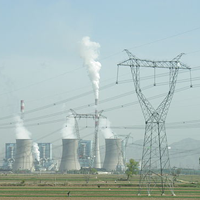BEIJING -- Following recent declines in headline inflation, weak power generation in October and deepening financial losses for power companies, speculation has once again picked up regarding potential coal and electricity pricing reform in China. While some form of price adjustment looks imminent, structural reforms to pricing mechanisms affect multiple domestic interest groups and are proving hard to manage for the party-state. Beyond pricing, many broader reforms are already delayed, and the struggle to build consensus looks likely to cause further disruption.
China's ambition to wean itself off coal is well-documented. Draft versions of the 12th Five-Year Plan (2011-2015) outlined wide-ranging reforms, including huge investment in non-coal electricity-generation assets -- renewables, nuclear and gas -- and a strong move toward more market-based pricing. The need for these reforms is growing: Besides the grave environmental consequences of inaction, power shortages are becoming increasingly common, while power industry indebtedness is rising sharply and generation-capacity investment has collapsed.
Developing alternative power sources presents serious challenges in itself, but reforming China's mammoth coal industry is arguably a more daunting and generally less understood risk to China's development cycle. Even in a best-case scenario for alternative development, coal will account for more than 50 percent of China's energy matrix for at least 20 years. And unlike the relatively young alternative energy markets, where interest groups are still forming, the coal power sector contains multiple historically entrenched lobbying groups.

